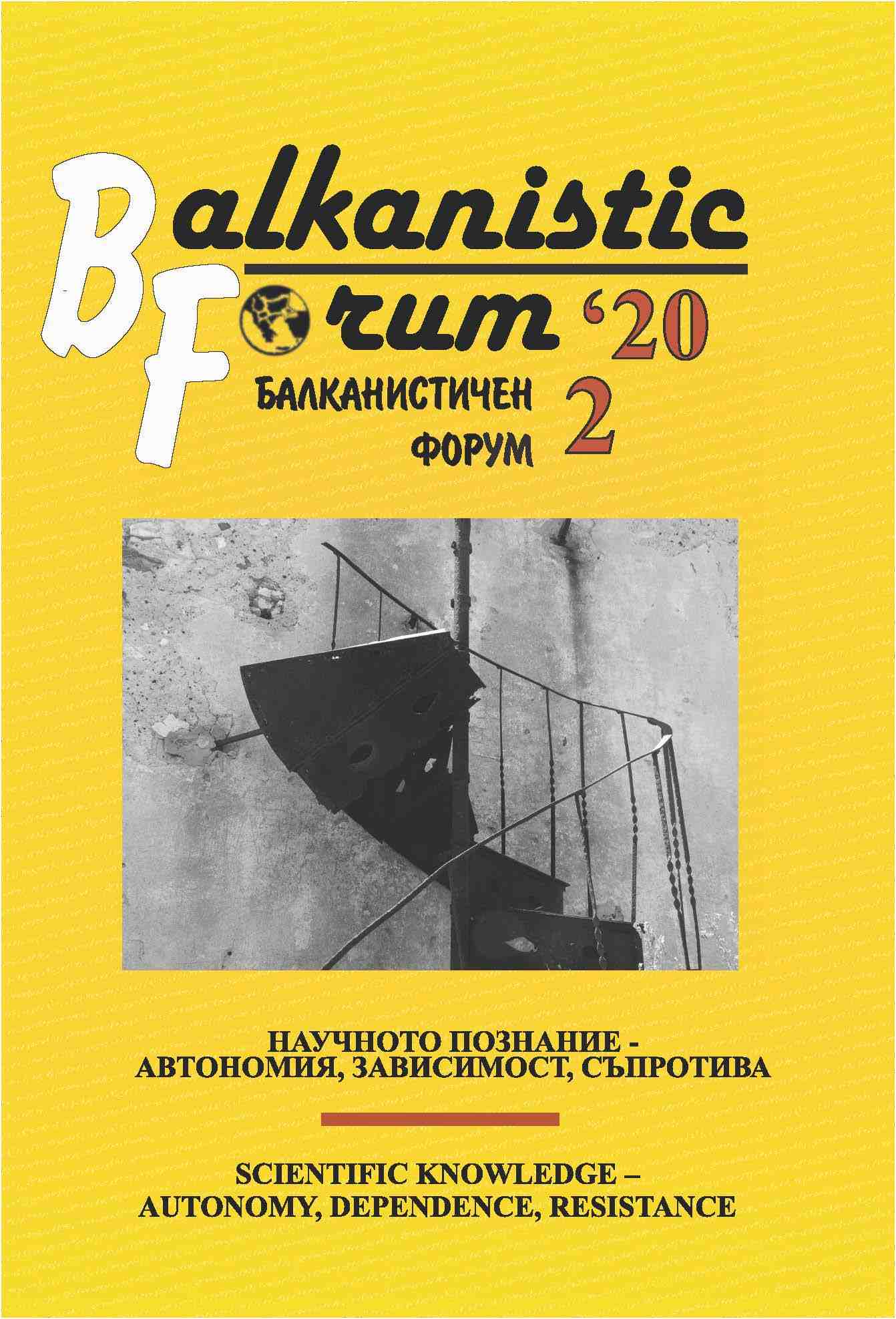The League of Nations between Scientific Knowledge and Political Dependence
The League of Nations between Scientific Knowledge and Political Dependence
Author(s): Dimitar Tyulekov, Ilko Drenkov, Jani NikollaSubject(s): History, Political history, Recent History (1900 till today)
Published by: ЮГОЗАПАДЕН УНИВЕРСИТЕТ »НЕОФИТ РИЛСКИ«
Keywords: League of Nations; Eric Drummond; Balkans; Albania; Bulgaria; Greece; Macedonian problem
Summary/Abstract: The League of Nations sets strict professional frameworks that are subordinate to scientific knowledge and international law and respect, without any differences between small and big powers. The first chairman, Eric Drummond, who headed up to 1934, established a huge international prestige of the organization and achieved a number of successes in peace building. The League’s policy in the Balkans is revealed mainly through its relations with Albania and Bulgaria, which both joined the League in December 1920. The two countries rely on the international organization for the peaceful resolution of their political, minority and social problems. Under the supervision of the League of Nations, a number of agreements for voluntary and mutual exchange of people between Greece and Bulgaria are being concluded, which aims to soothe the Macedonian problem in Aegean Macedonia. Under her patronage are the agreements between Greece and Albania regulating the protection of Greek minorities and schools, as well as settling the border dispute between the Serb-Croat-Slovene Kingdom and Albania in 1921. The rapid intervention of the United Nations suspended the Greek aggression on Bulgarian territory in the autumn of 1925 and prevented a possible new war. Dimitar Shalev's petitions from Skopje to the United Nations aim to achieve the Yugoslav state's humane treatment towards Bulgarian minorities within its borders, but political dependencies and overlapping contradictions are an obstacle to peaceful and sustainable political outcomes. In the second half of the 1930s, the League lost its initial prestige, and in the course of the emerging new global conflict it fell into political dependence, marking its collapse. Unresolved issues and contradictions, along with the harsh political post-war realities, quickly bury the League’s noble impetus.
Journal: Балканистичен Форум
- Issue Year: 2020
- Issue No: 2
- Page Range: 188-202
- Page Count: 15
- Language: English
- Content File-PDF

